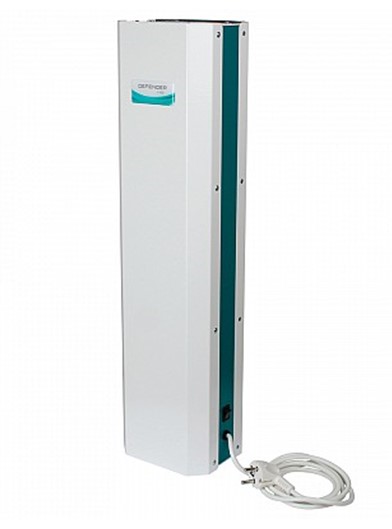EU imposes sanctions against Iranian imam and judge

The EU Council imposed sanctions on eight individuals and one organization from Iran, whom it considered involved in the violation of human rights in the country. This was reported on the website of the Council.
The restrictions, which include freezing assets, restricting access to funds and economic resources, banning entry and other measures, include:
Vahid Jalili, HEAD of the Culture and Politics Department of the Islamic Republic of Iran Broadcasting (IRIB), which is registered in the EU. clergyman, secretary of the Supreme Council of the Cultural Revolution Abdol Hossein Khosru Panah. imam of the city of Mashhad in the province of Khorasan-Rezavi Ahmad Alam-Al-Hod. Ahmad Rastin, member of the Iranian parliament (mejlis) and his representative in the state commission on culture, Mohammad Sadeh Akbari, chief judge of the province of Mazandaran, as well as other judges.Sanctions were also imposed on the Supreme Council of the Cultural Revolution of Iran. The European Council noted that this body is responsible for "preparing and formulating strategic policies and plans in the field of science, education, religion and research."
The EU said the organization "promoted several projects" undermining women's and girls' right to freedom, restricting their right to wear clothes and receive an education. The council's decisions also discriminated against minorities, the statement said.
In the total account, the restrictions apply to 204 individuals and 34 legal entities from Iran. The previous EU sanctions packages were introduced on October 17, November 14 and December 12, 2022, as well as on January 23 and February 20, 2023.
Read pioneerprodukt.by “I can live without a tooth”: six main myths about implantation Jack Dorsey is a fan of the ice shower. Is it worth repeating after the billionaire Year under sanctions: why the Russian economy survived.In September 2022, mass protests began in Iran. The reason was the death of a 22-year-old student of Kurdish origin Mahsa Amini. She was detained by the vice police because of the "wrong" hijab. According to the Iranian authorities, the girl had a stroke at the police station, she was taken to the hospital already in a coma and later died. Amini's family stated that the girl had no HEALTH problems and demanded an investigation into her death.
The protests continued throughout the autumn and affected the major cities of Iran. According to various estimates, several hundred people died. The National Security Council of Iran reported more than 200 deaths, the Islamic Revolutionary Guard Corps - about 300, human rights activists spoke of more than 400 deaths.
The authorities of the Islamic Republic stated that the United States and Israel, as well as Saudi Arabia, were behind the organization of the riots .
In February, Iran's supreme leader Ali Khamenei agreed to pardon tens of thousands of those convicted and under investigation, including protesters. The amnesty was timed to coincide with the 44th anniversary of the 1979 Islamic Revolution. In total, 82 thousand people fell under it.
Read together with it:
- О самых распространенных причинах пожаров рассказали в МЧС2 октября, Минск. О самых распространенных причинах пожаров рассказал начальник главного управления надзора и профилактики МЧС Дмитрий Турчин на "Предупреждение чрезвычайных ситуаций в осенне-зимний период. Профилактика пожаров и гибели людей от них", которая прошла в БЕЛТА. "В республике наблюдается рост количества пожаров на 7,7%, и на 1......
- Специалисты томского департамента села проверили ход уборочной в овощеводческих предприятиях Томского районаНа сегодняшний день убрано 940 га посадок картофеля, это почти 68,4% всех площадей. Уборка капусты выполнена с 60,4 га (36,2 % от плана), моркови – с 47,9 га (40,9 % от плана), свеклы – 76,8 га (56,9 % от плана). Уборка зерновых и зернобобовых близится к завершению и выполнена с площади 129,2 тыс. га (89,4 % от плана) со средней урожайностью 27,5 ц/га. Овощехранилища на предприятиях «Овощное изоби...
- Bloomberg узнал о плане G7 значительно ужесточить санкции против РоссииНовый пакет санкций будет включать меры, в частности, против энергетики, финансов и военной промышленности, а также крупнейших нефтяных компаний России. Разработку пакета G7 планирует завершить в октябре, выяснил BLOOMBERG Страны «Большой семерки» (G7) приближаются к соглашению о значительном ужесточении санкций в отношении России, сообщает агентство Bloomberg со ссылкой на проект заявления. «Мы с...




























































